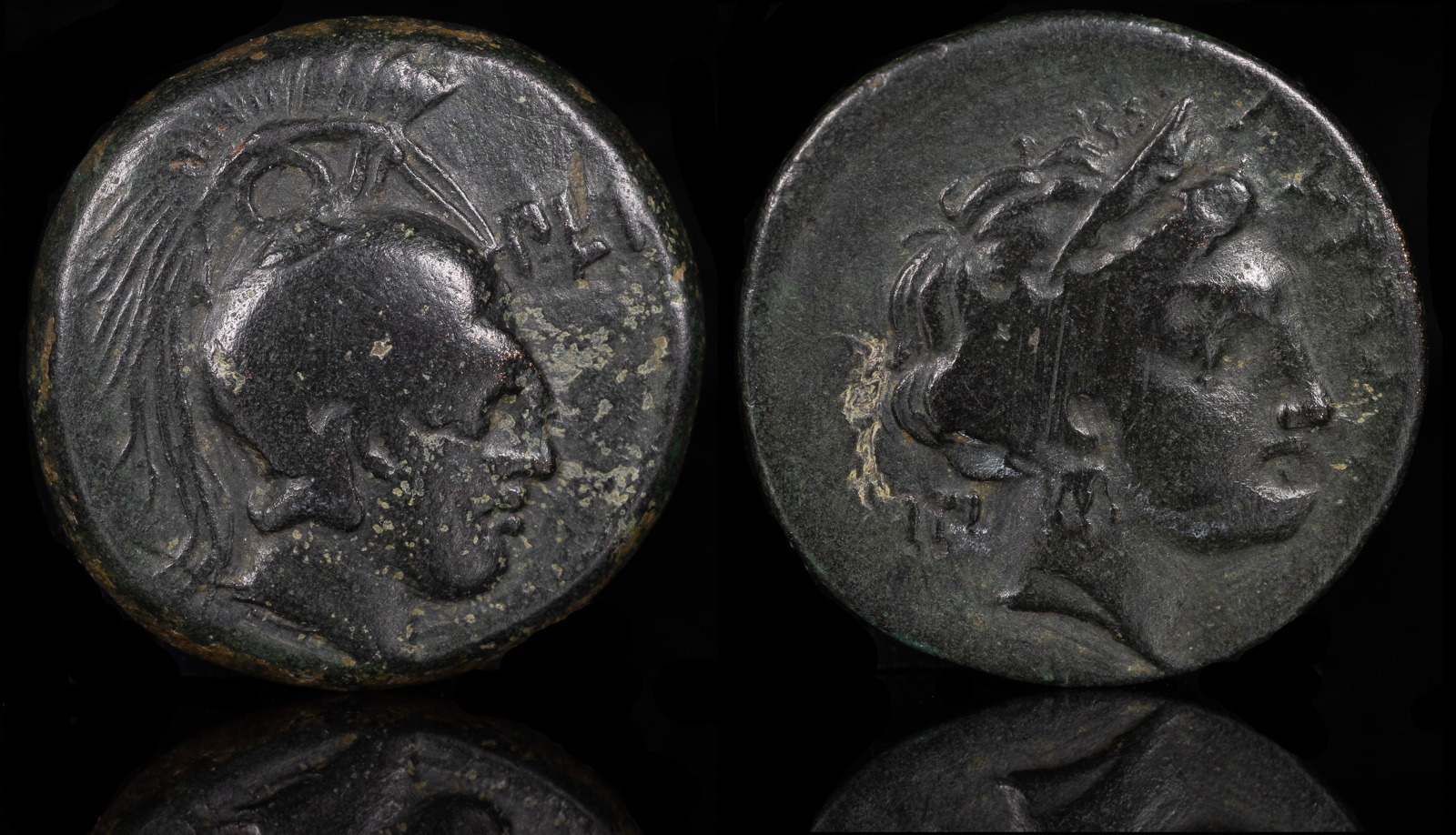Ares
View All Tags
Ares’ duties and responsibilities in Greek mythology were primarily linked to the battlefield. He was believed to be the embodiment of the physical and violent aspects of war, including the rage, fury, and bloodlust that came with it. Unlike other gods who might influence the outcome of battles through strategy, foresight, or diplomacy, Ares thrived on the sheer intensity and carnage of combat. He was often portrayed as taking pleasure in the suffering of mortals and gods alike. His presence was invoked in times of war, particularly when the Greeks sought to gain strength or ferocity in battle. However, his reckless and unpredictable nature often led to negative outcomes, making him a more controversial and feared deity.
In addition to his role as a warrior god, Ares also had a more complex and sometimes contradictory role in Greek mythology. Despite his aggressive nature, Ares was also connected to the concept of courage and the valor of warriors. In some myths, he was shown as a protector of the battlefield, offering support to his followers or guiding them through combat. He was often accompanied by other figures symbolizing aspects of war, such as his sons Phobos (fear) and Deimos (terror), who personified the emotional and psychological effects of war. However, Ares was frequently at odds with other gods and heroes, often depicted as quarrelling with his divine counterparts, such as Athena and Hera, or even with mortal heroes like Herakles.
Despite his prominent role in Greek mythology, Ares was not as widely worshipped as other gods like Zeus, Apollo, or Athena. His nature as a god of destruction and his association with violence made him a more divisive figure. Temples and shrines dedicated to Ares were relatively few, and in many parts of the Greek world, his cult was less developed compared to other deities. Nevertheless, Ares was still invoked by warriors before battle and had a significant place in the military culture of ancient Greece. His presence in myth and ritual symbolized the harsh realities of war, and he reminded the Greeks of the need for both courage and caution in the face of violence. In Roman mythology, Ares was adopted as Mars, the Roman god of war, where his image became more closely associated with the defense and expansion of the state, further evolving his duties and symbolism.
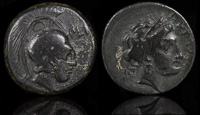
Gyrton, Thessaly 340-320 BCE
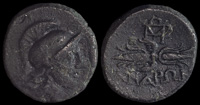
Metropolis, Ionia 100-0 BCE
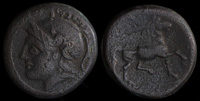
Phalanna, Thessaly 325-300 BCE

Phalanna, Thessaly 400-250 BCE
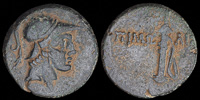
Pimolisa, Paphlagonia 111-90 BCE
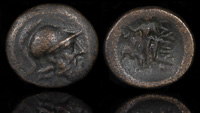
Sillyon, Pamphylia 4th century BCE
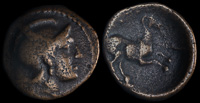
Skotussa, Thessaly 3rd century BCE
